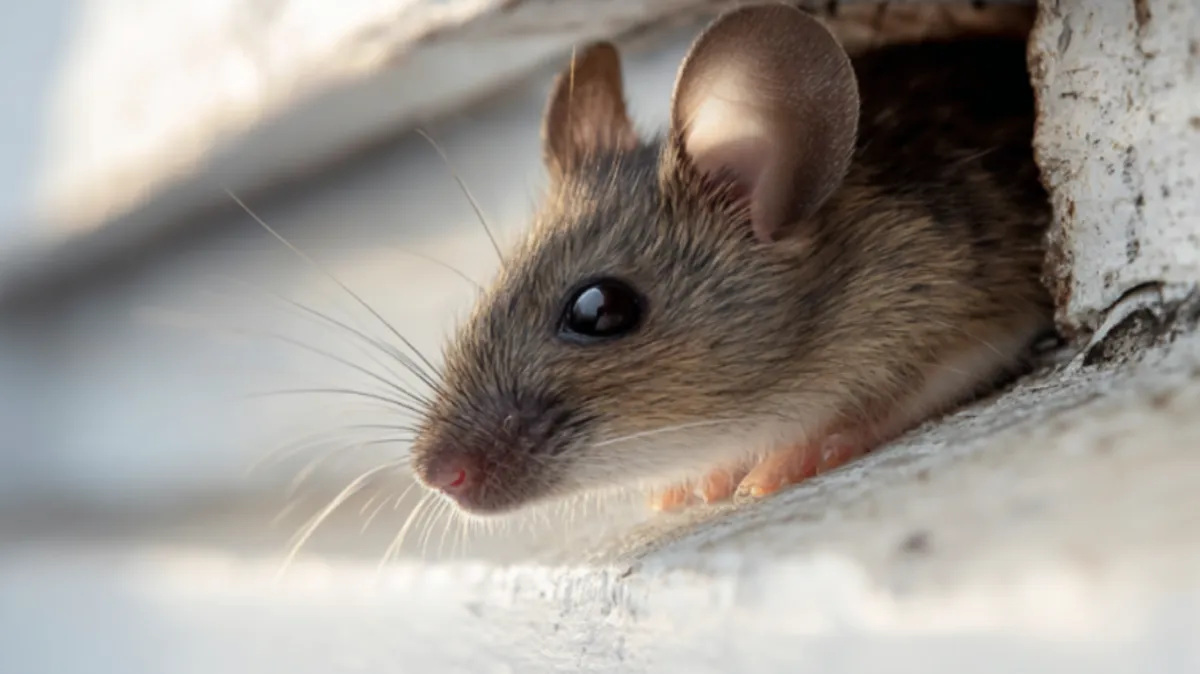
The St. Catharines Pest Journal
The St. Catharines Pest Control Journal

Invaders Indoors: Fall Pest Entry Points to WatchPost
Why Fall Is Prime Time for Pest Break-Ins
As autumn arrives and temperatures begin to dip in St. Catharines, pests like mice, rats, cockroaches, spiders, and cluster flies begin their seasonal migration—straight into your home. These critters aren’t just looking for a temporary visit. They’re searching for a warm, secure place to nest for the winter, complete with easy access to food and water.
Even the smallest vulnerabilities in your home can become major entry points:
Cracks in the foundation or siding
Gaps around windows and door frames
Unsealed vents or utility lines
Slightly open garage or basement doors
What Happens If You Don’t Act?
Failing to seal your home in early fall can lead to a cascade of pest-related problems. Here’s what you risk:
1. Structural Damage
Rodents chew through insulation, wood beams, drywall, and electrical wiring, increasing your risk of fire hazards and costly repairs.
Cockroaches and other insects can compromise sealants, cardboard storage, and wallpaper, causing hidden deterioration over time.
2. Health Hazards
Mice and rats can spread diseases like Hantavirus, Salmonella, and Leptospirosis through urine and droppings.
Cockroach droppings and shed skins are known to trigger asthma and allergies, especially in children and the elderly.
Cluster flies and spiders, though less aggressive, can create unsanitary conditions and stress with their sheer numbers.
3. Rapid Infestations
A single rodent pair can produce up to 60 offspring per year under ideal indoor conditions.
Cockroach populations can multiply exponentially within weeks, especially in moist, food-rich environments like kitchens or basements.
Top Entry Points to Inspect (and How to Seal Them)
When it comes to fall pest-proofing, a proactive approach makes all the difference. Many homeowners in St. Catharines, ON, are surprised to learn that the most common pest entry points are often hiding in plain sight. Conducting a detailed inspection now can prevent unwanted visitors from moving in for the winter.
Here are the five most common access points—and exactly how to secure them:
1. Gaps Around Windows and Doors
What to Look For:
Cracked or peeling caulking around window frames
Loose, torn, or missing weather stripping
Daylight visible through door jambs or thresholds
How to Fix It:
Reseal window frames using high-quality, silicone-based exterior caulking to block drafts and insect pathways.
Replace weather stripping around all doors and windows to ensure a snug fit.
Install door sweeps along the bottoms of exterior doors—an easy and affordable solution to block mice and insects.
2. Cracks in the Foundation and Exterior Walls
What to Look For:
Fine fractures in brick or concrete
Gaps or holes near the ground or near utility entries
Exposed mortar joints around your foundation
How to Fix It:
Use mortar or cement filler for structural cracks in stone or brick foundations.
Apply expandable foam or weatherproof caulking to smaller gaps and seams.
Pay special attention to corners, baseboards, and where pipes or wires enter the home, as these are prime infiltration points.
3. Unscreened Vents and Chimneys
What to Look For:
Open attic, gable, or soffit vents without mesh screens
Chimneys with no flue cap
Nesting materials like twigs or droppings inside or around vents
How to Fix It:
Install metal mesh screens on all attic, roof, and crawl space vents to prevent rodent and bird access.
Add a chimney cap with a secure wire screen to block squirrels, raccoons, and cluster flies.
Inspect dryer vents and bathroom exhausts to ensure they are clean and covered.
4. Gaps Around Utility Pipes and Cables
What to Look For:
Visible holes or poor sealing where gas lines, electrical conduits, or water pipes enter the building
Chewed or frayed insulation around pipes (a sign of previous rodent activity)
Bonus Tips to Make Your Home Less Inviting to Pests
Sealing cracks and crevices is a great first step—but to truly deter pests from settling into your St. Catharines home this fall, it’s essential to make your entire environment less attractive to them. Most pests enter in search of two things: food and shelter. By eliminating these comforts, you greatly reduce the chances of an infestation.
Here are two critical strategies with actionable tips you can implement today:
1. Eliminate Indoor Food and Water Sources
Once pests find their way inside, they’ll stay if they have access to meals and moisture. Keep your interior clean and dry with the following steps:
Store food properly: Transfer pantry staples like cereal, rice, and pet food into airtight, sealed containers to prevent easy access by cockroaches and rodents.
Clean daily: Wipe down countertops, sweep or vacuum floors, and clean up crumbs and spills—especially in the kitchen and dining areas.
Take out the trash: Empty garbage bins regularly and use tight-fitting lids to prevent smells and access that attract foraging pests.
Don’t forget pet areas: Clean food and water bowls nightly and store pet food in sealed containers away from the floor.
2. Maintain a Clear Perimeter Around Your Home
Outdoor maintenance is just as important as indoor care. Fall foliage and yard clutter can provide perfect hiding spots for pests preparing to migrate indoors.
Rake and remove leaves: Piles of leaves near the foundation or in gutters create damp nesting zones for insects and rodents.
Trim vegetation: Cut back trees, shrubs, and vines that touch your siding or roof—branches can act as bridges for ants, rodents, and spiders.
Relocate firewood: Store wood piles at least 20 feet away from your house and elevate them off the ground to prevent rodents from nesting beneath.
Clear porches and sheds: Declutter garages, sheds, and under-deck spaces where pests can hide undisturbed.
The changing season doesn’t have to mean changing your peace of mind. With early prevention and a professional eye, you can keep pests outdoors where they belong—and enjoy a cozy, critter-free home this fall.
Ready to protect your St. Catharines home?
Contact Petty Pest Control today for a fall inspection and customized pest-proofing plan.
[https://pettypestcontrol.ca/]

Schedule a Pest Inspection
Ready to schedule a pest inspection? Contact us today.

